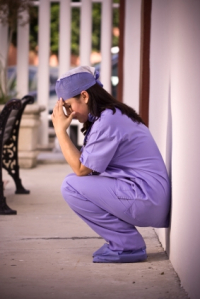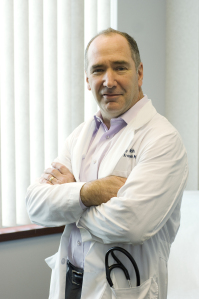We are updating this blogpost to call attention to an amazing event that has come together primarily as a result of the original posting back in September. After sharing this article with our colleagues around the world, and across the Southern California region, we received an outpouring of interest. We have since invited Dr. Krasner to come to San Diego on May 11, 2013 to present a daylong workshop on mindful practice entitled "Mindfulness in Clinical Practice: Our Patients, Ourselves." This event will include an hour-long presentation on the Neuroscience of Mindfulness by Tom Chippendale, MD, Director of Neuroscience at Scripps Health and longtime MBSR teacher.
 As the skirmishes and battles on healthcare rage loudly on in the political and financial arenas of our society, there is a darker, more troubling process unfolding “on the ground” in the day-to-day practice of medicine and healing in general. Within the crucible of the doctor-patient encounter, where human suffering is intended to meet compassionate and effective healing, something isn’t working. Patients aren’t satisfied with the quality of care they receive and doctors are experiencing declining job satisfaction, burnout, “compassion fatigue” and are feeling increasingly alienated from the profession that once inspired passion and dedication. Physician and physician-in-training suicide is a rising and troubling outgrowth of this underlying malaise in the system.
As the skirmishes and battles on healthcare rage loudly on in the political and financial arenas of our society, there is a darker, more troubling process unfolding “on the ground” in the day-to-day practice of medicine and healing in general. Within the crucible of the doctor-patient encounter, where human suffering is intended to meet compassionate and effective healing, something isn’t working. Patients aren’t satisfied with the quality of care they receive and doctors are experiencing declining job satisfaction, burnout, “compassion fatigue” and are feeling increasingly alienated from the profession that once inspired passion and dedication. Physician and physician-in-training suicide is a rising and troubling outgrowth of this underlying malaise in the system.
Dr. Mick Krasner, Associate Professor Clinical Medicine at the University of Rochester School of Medicine & Dentistry, and his colleagues, have done groundbreaking research on the potential to address this growing phenomenon. In the Journal of the American Medical Association, they shared the results of a 2012 study of the impact of an extensive course in mindfulness, communication and self-awareness on 70 community physicians. The results are striking in demonstrating the positive effect of this program on physician well-being and satisfaction, including improvements in scores on measures of burnout, mood disturbance, emotional stability and depersonalization.

Krasner and his colleagues have now taken their results to the examining room, so to speak, and drawn on them to develop a powerful training program in what they call Mindful Practice. More than just a gathering of health professionals interested in exploring what it would mean to bring mindfulness into their lives both personally and professionally, Krasner notes that “What has become clear is the imperative for what Saki Santorelli calls a ‘Collegial Sangha’ and that is what has been the outcome of our trainings. …this need for community and its absence in many of our health professionals’ work lives is a real force in the loss of meaning in our profession, reduced adaptive capacity and resilience to withstand the changing nature of our work, and the growing trend toward burnout.”
"...isn’t a boundary also a place of meeting and coming together?"
This effort to powerfully change the nature of the healing encounter through the mindful practice of the clinician arises out of exploring what has traditionally been referred to as the “boundary” between patient and doctor. Saki Santorelli, the Executive Director of the Center for Mindfulness at the University of Massachusetts Medical School, writes eloquently in his book Heal Thy Self of the pitfalls and opportunities of boundary-making. He says, “The usual meaning of boundary is “dividing line” – a separation between two things. But isn’t a boundary also a place of meeting and coming together?” He goes on to write “These intertwining movements are similar for us as patients and practitioners. Yet all too often the hard, impenetrable borders of this relationship are carved out of a process of identification that divides self and not-self into mutually exclusive entities. Unconsciously, this process winds up shaping the entire interaction. I am not suggesting that these roles are the same. They are not. But they are just that – roles. And behind these roles lies a much larger field, our shared humanness.”

Two 4-day retreat-style courses have been developed by Krasner and Ron Epstein, Professor of Family Medicine, Psychiatry, Oncology and Nursing at the University of Rochester, and are offered through University of Rochester Medical Center’s Center for Experiential Learning. The first was entitled Promoting Mindful Practice in Medical Education and Practice and was offered on October 31-November 3, 2012. The second course is Mindful Practice: Focus on Serious and Life-Limiting Illness on May 1-4, 2013. Both programs are offered at the beautiful Chapin Mill Retreat Center in Batavia, New York.
________
Krasner M. S., Epstein R. M., Beckman H., Suchman A. L., Chapman B., Mooney C. J., Quill T. E. (2009). Association of an educational program in mindful communication with burnout, empathy, and attitudes among primary care physicians. JAMA 302, 1284–1293. doi: 10.1001/jama.2009.1384.
Beckman HB, Wendland M, Mooney C, Krasner MS, Quill TE, Suchman AL, Epstein RM.. The impact of a program on mindful communication on primary care physicians Academic Medicine 2012; 87(6): 815-819

